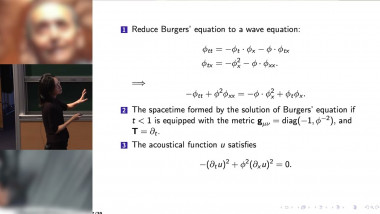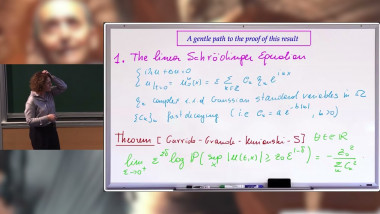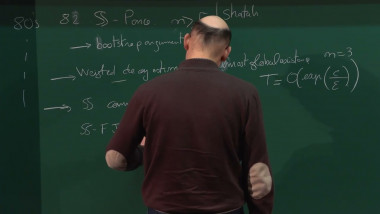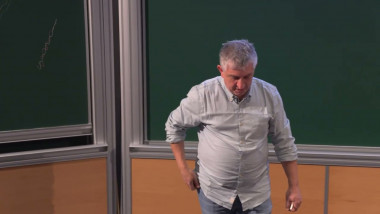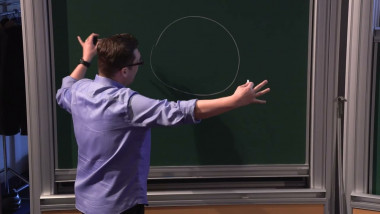Appears in collection : Inhomogeneous Flows: Asymptotic Models and Interfaces Evolution / Fluides inhomogènes : modèles asymptotiques et évolution d'interfaces
In this joint work with Athanasios Tzavaras (KAUST) and Corrado Lattanzio (L’Aquila) we develop a relative entropy framework for Hamiltonian flows that in particular covers the Euler-Korteweg system, a well-known diffuse interface model for compressible multiphase flows. We put a particular emphasis on extending the relative entropy framework to the case of non-monotone pressure laws which make the energy functional non-convex.The relative entropy computation directly implies weak (entropic)-strong uniqueness, but we will also outline how it can be used in other contexts. Firstly, we describe how it can be used to rigorously show that in the large friction limit solutions of Euler-Korteweg converge to solutions of the Cahn-Hilliard equation. Secondly, we explain how the relative entropy can be used for obtaining a posteriori error estimates for numerical approximation schemes.
